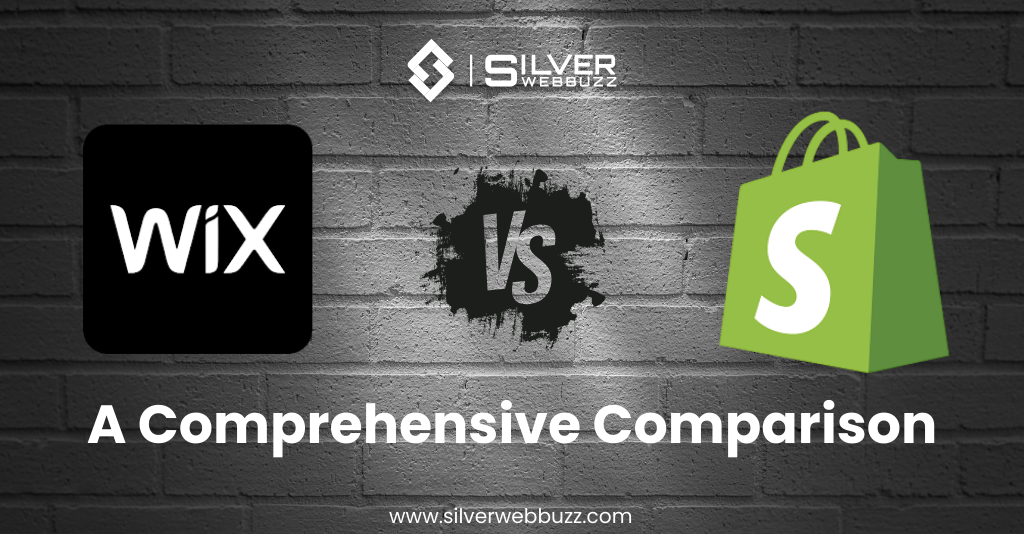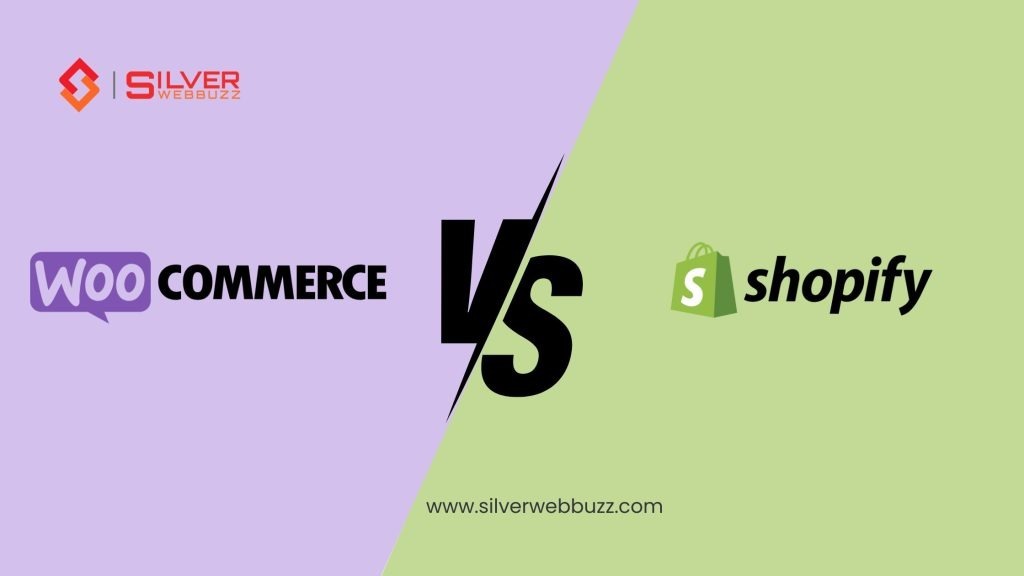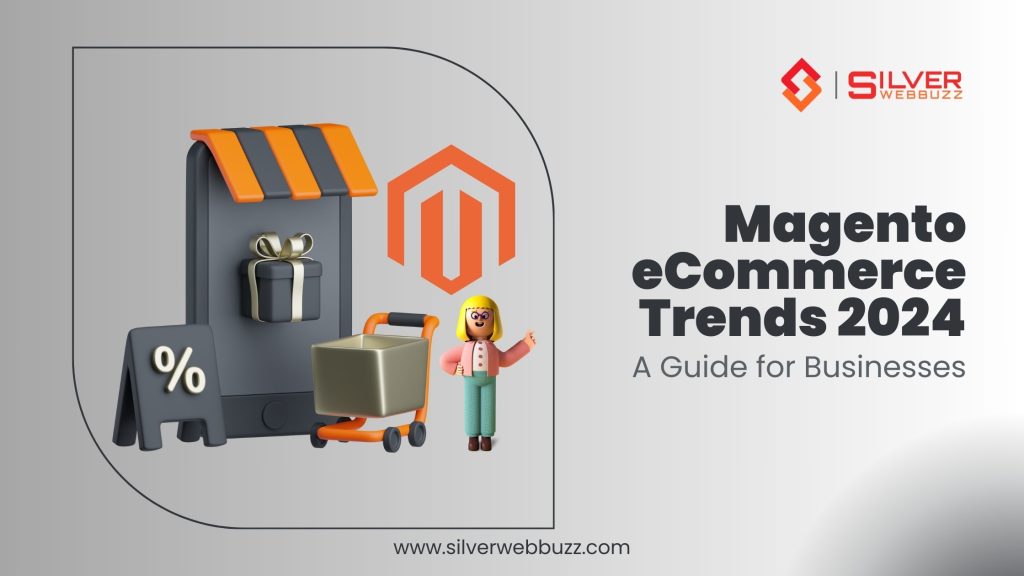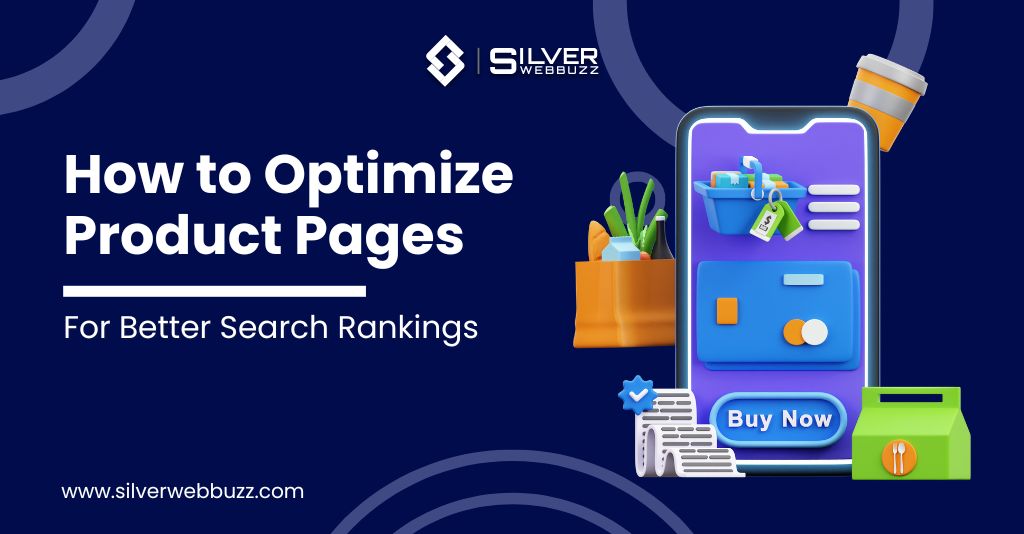In today’s digital landscape, choosing the right platform for building your online store is crucial. Your website is not just a storefront—it’s the heart of your online business. It impacts user experience, sales performance, SEO rankings, and overall business growth. That’s why the debate around Shopify vs Wix continues to grow, as both platforms offer competitive features that cater to different needs and audiences.
When it comes to building a professional, feature-rich eCommerce site, the decision between Shopify vs Wix can make or break your business strategy. Both platforms are market leaders in their own rights—Shopify is renowned for its specialized eCommerce capabilities, while Wix offers unmatched ease of use with its drag-and-drop functionality. However, understanding the key differences is essential to choosing the right one for your business.
This article dives deep into a head-to-head comparison of Shopify vs Wix, covering their core features, architecture, pricing, eCommerce capabilities, and more. We’ll also discuss use cases and recommendations depending on your business goals. By the end, you’ll be fully equipped to decide which platform suits your online venture the best.
What is Shopify?

Background
Founded in 2006, Shopify started as a dedicated eCommerce platform focused solely on helping users build and manage online stores. It was created to simplify the process of selling online and has since evolved into one of the most robust eCommerce solutions available today.
Purpose
Unlike multipurpose website builders, Shopify is designed specifically for eCommerce. Its ecosystem supports everything from small startups to enterprise-level businesses, thanks to its high scalability and powerful backend infrastructure.
Key Features
Shopify comes loaded with features that streamline every aspect of online selling:
- Product Management: Effortless inventory and SKU tracking, product categorization, and variants.
- Payment Processing: Integrated with over 100 payment gateways, including Shopify Payments.
- Shipping & Tax: Automated tax calculation and real-time shipping rates.
- Inventory Control: Real-time tracking and low-stock alerts.
- App Store: Thousands of apps to expand your store’s capabilities—email marketing, dropshipping, SEO, analytics, and more.
If you’re considering Shopify development for a new store or revamping an existing one, you’re tapping into a highly optimized platform tailored to eCommerce excellence.
Market Share and Popularity
Shopify powers over 4 million websites globally, including big brands like Gymshark, Kylie Cosmetics, and Red Bull. It dominates the eCommerce space, especially for businesses that are serious about scaling their operations online.
Community and Support
Shopify boasts extensive documentation, a responsive customer support team available 24/7, and an active user forum. Whether you are a DIY entrepreneur or looking to Hire Shopify Developer experts, there’s a thriving ecosystem to support your journey.
Shopify Architecture
Hosted Solution
Shopify is a fully hosted SaaS (Software as a Service) platform. This means you don’t have to worry about servers, security patches, or software updates—it’s all managed for you.
Liquid Templating Engine
Shopify uses Liquid, a flexible open-source templating language that enables developers to create dynamic content. It’s ideal for developers offering custom Shopify development solutions, as it allows deep customization.
Built-in SEO and Analytics
Shopify includes SEO-friendly features like customizable title tags, meta descriptions, and automatic sitemap generation. Coupled with its powerful analytics dashboard, it’s easier to track and optimize performance.
Third-party Integration
From social media and shipping carriers to CRMs and ERPs, Shopify easily integrates with thousands of third-party services via APIs and apps. This extensibility is a game-changer for businesses looking to streamline their operations.
What is Wix?
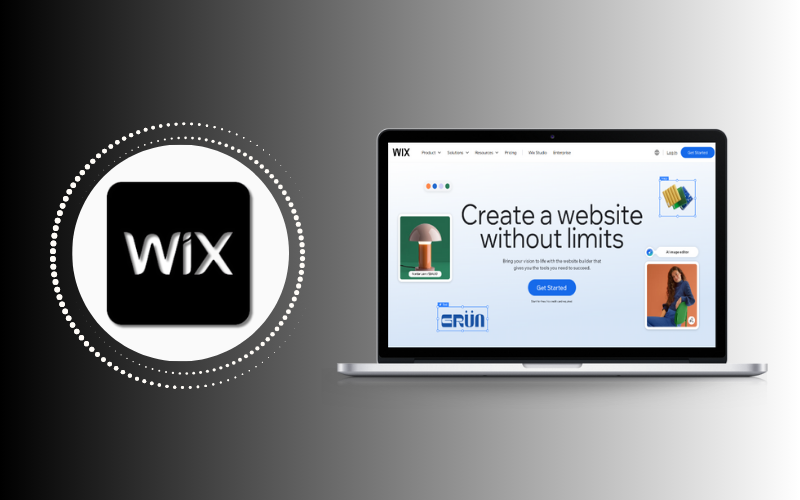
Background
Wix was also founded in 2006, originally intended as a drag-and-drop website builder. Over the years, it has evolved into a versatile platform that allows users to build not just blogs and portfolios, but also functional online stores.
Purpose
Wix is aimed at users who want to create beautiful websites quickly without needing any technical knowledge. While it has added eCommerce functionality over time, it’s still seen primarily as a general-purpose website builder.
Key Features
- Wix Editor: Intuitive drag-and-drop builder for real-time design.
- Templates: Hundreds of professionally designed templates.
- App Marketplace: A range of apps for enhancing website functionality.
- Basic eCommerce Tools: Shopping cart, payment gateways, order management, etc.
Target Audience
Wix is perfect for small business owners, bloggers, freelancers, and portfolio sites. It’s a fantastic choice if you prioritize ease of use and design flexibility over deep eCommerce functionality.
Community and Support
Wix has a rich library of tutorials, forums, and a responsive help center. For newcomers, Wix offers a gentle learning curve, making it easier to get started compared to Shopify.
Woocommerce vs Shopify: Which Platform is Right for Your Online Store?
Wix Architecture
Cloud-Based Infrastructure
Wix operates on a proprietary cloud infrastructure, ensuring your website remains online with minimal downtime. It handles hosting, backups, and security, much like Shopify.
Wix ADI and Velo
- Wix ADI (Artificial Design Intelligence): Automates website creation by asking users a few questions and generating a customized website.
- Velo by Wix: A development platform that lets advanced users inject code and create custom functionalities—offering a more tailored experience for developers.
Wix’s design structure is template-driven, but with Velo, you can go beyond the template and build more dynamic websites.
Shopify vs Wix: Head-to-Head Comparison
When comparing Shopify vs Wix, it’s essential to break down their performance across key categories. This comparison helps determine which platform aligns best with your business objectives, especially if you plan to scale or require specific functionalities. Below, we explore their differences in detail.
1. Ease of Use
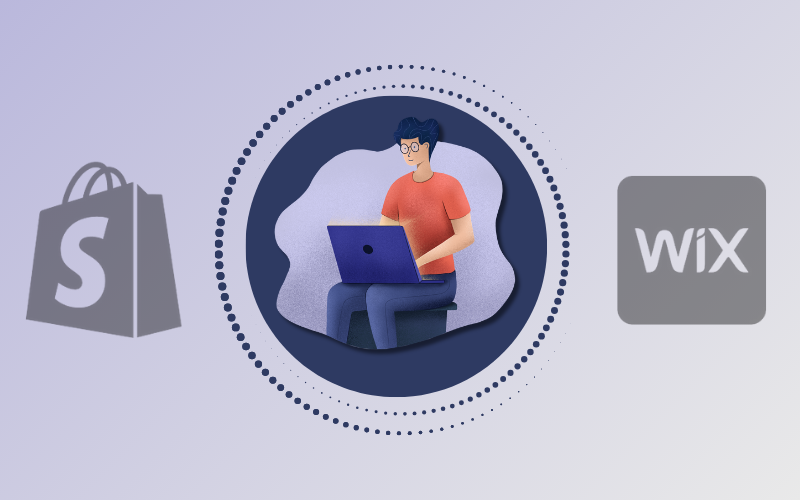
Shopify is tailored for eCommerce, but it requires a slight learning curve for first-time users. The dashboard is neatly organized, making it easy to manage products, process orders, and view analytics. Still, navigating Shopify’s backend and setup may take time if you’re unfamiliar with eCommerce-specific settings. For advanced features or customizations, you might need to Hire Shopify Developer services, especially for larger stores or unique integrations.
Wix, on the other hand, is designed with beginners in mind. Its drag-and-drop interface offers absolute freedom to position elements anywhere on the page. With Wix ADI (Artificial Design Intelligence), even non-tech users can create a complete website in minutes. For those who want to get online fast without diving deep into functionality, Wix is a clear winner in usability.
Verdict:
- For quick and effortless design: Wix
- For structured eCommerce workflow with a slight learning curve: Shopify
2. eCommerce Features
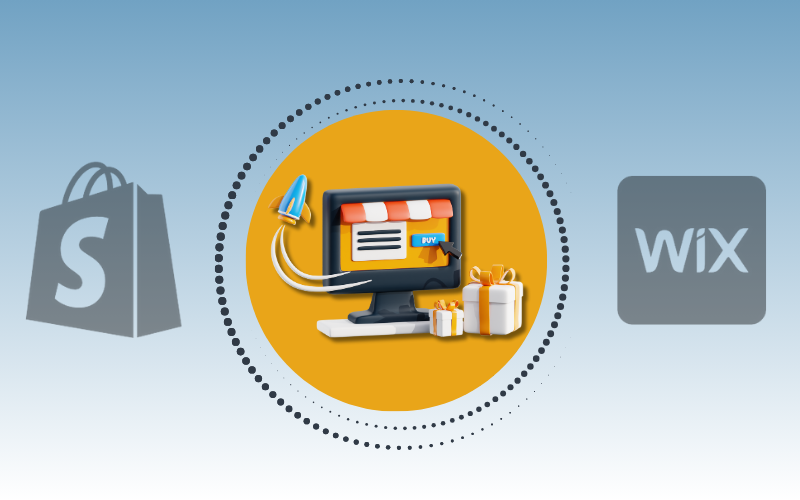
This is where the Shopify vs Wix comparison gets serious. Shopify is a full-fledged eCommerce platform, designed from the ground up to sell online.
Shopify includes:
- Abandoned cart recovery
- Multi-channel selling (Amazon, Instagram, Facebook)
- Real-time shipping rates and fulfillment integration
- Extensive payment gateways
- Fraud analysis and customer profiles
- Inventory management across multiple locations
This robust feature set makes Shopify a leader in the eCommerce space. It’s the go-to platform for entrepreneurs who need scalability and performance. Partnering with a company like Silver WebBuzz can help you leverage expert-level Shopify development and integrations.
Wix, while offering eCommerce tools, is more basic in nature. It includes product pages, cart functionality, and payment gateways, but lacks many advanced features out-of-the-box. Features like multi-currency support, customer segmentation, or third-party fulfillment are either limited or non-existent.
Verdict:
- For serious eCommerce operations: Shopify
- For small online shops or side businesses: Wix
3. Design & Customization
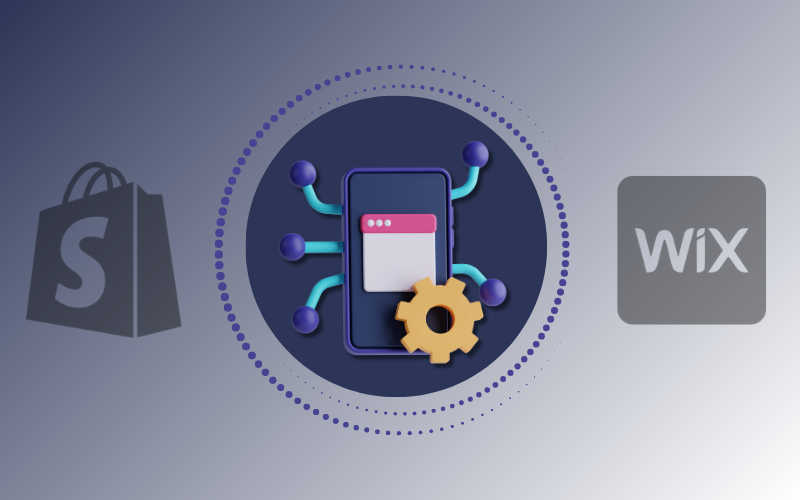
Design flexibility is another major factor in the Shopify vs Wix debate.
Wix shines in this department. It allows pixel-level control of every element using its drag-and-drop editor. You can place images, videos, and animations wherever you want. With over 800+ designer templates and the ability to modify every aspect, Wix is a creative’s dream. Velo by Wix also allows custom coding for dynamic content and database-driven websites.
Shopify uses pre-designed themes that are optimized for eCommerce. While you can make changes via the theme editor or Liquid templating language, customization can be limited without coding knowledge. To unlock deeper design capabilities, many businesses Hire Shopify Developer experts who can manipulate Shopify’s Liquid code and provide custom solutions.
Verdict:
- For creative freedom: Wix
- For eCommerce-optimized themes with potential for deep customization via development: Shopify
4. Pricing
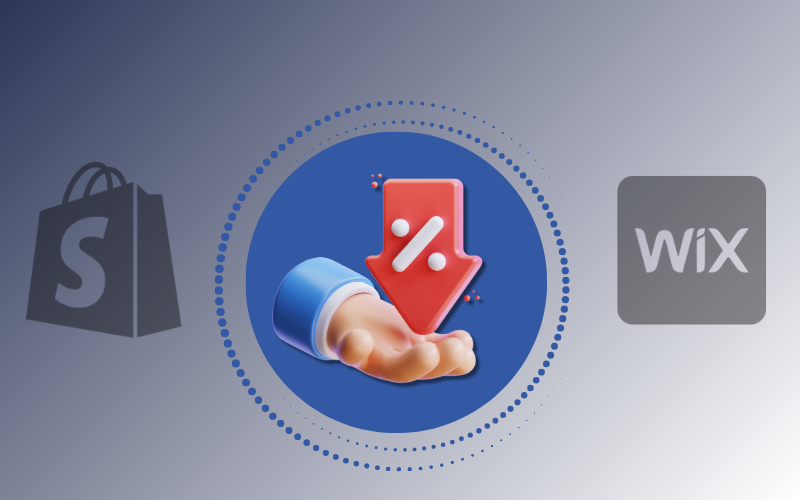
When comparing Shopify vs Wix in terms of cost, it’s not just about monthly fees—it’s about the value you get for your investment.
Shopify plans range from $39/month (Basic Shopify) to $399/month (Advanced Shopify), plus transaction fees unless you use Shopify Payments. While more expensive, the plans offer scalable features, advanced reporting, and enterprise-level tools that justify the cost. Additional costs may include app subscriptions and Shopify development services.
Wix offers a free plan (with Wix ads) and eCommerce plans starting at just $27/month. For users who need a simple online store or portfolio site, Wix provides an affordable way to go live quickly.
Verdict:
- For cost-effective website creation: Wix
- For high-value, scalable eCommerce growth: Shopify
5. App Ecosystem
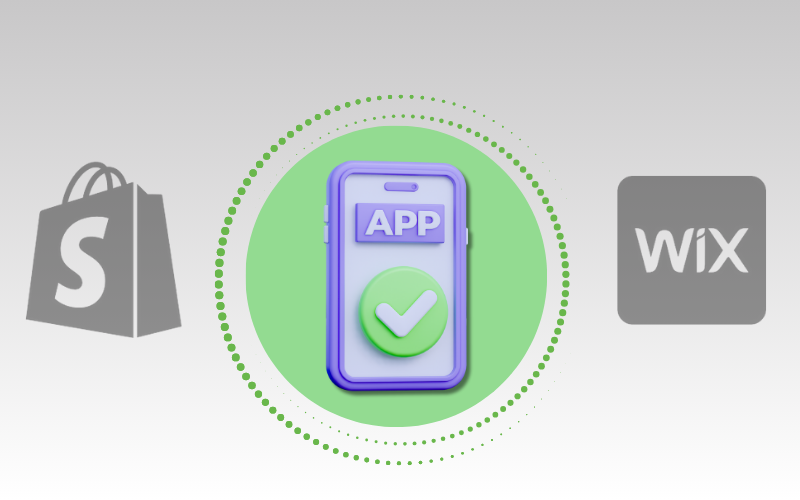
A strong app marketplace enhances a platform’s flexibility and performance. In this case, the Shopify vs Wix comparison clearly favors Shopify.
Shopify has an app ecosystem with over 8000 apps. Whether you need marketing automation, inventory sync, dropshipping, subscription management, or custom reporting, there’s likely an app available. These apps significantly improve store functionality, and skilled developers from teams like Silver WebBuzz can help integrate them efficiently into your store’s workflow.
Wix also offers a decent app marketplace, but it’s not as diverse or focused on eCommerce. Most apps cater to general website needs like booking, chat, and form builders. The lack of advanced retail-focused tools makes Wix less suitable for long-term eCommerce scalability.
Verdict:
- For eCommerce-specific extensions: Shopify
- For basic site enhancements: Wix
6. SEO Capabilities
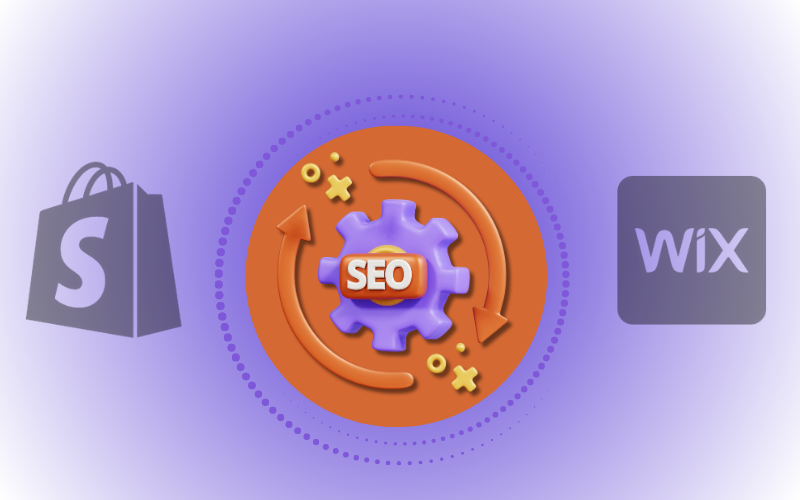
Both Shopify and Wix have improved their SEO capabilities over the years, making this a closer race in the Shopify vs Wix battle.
Shopify allows you to edit meta titles, descriptions, alt texts, and URLs. It also creates automatic sitemaps and supports 301 redirects. The platform’s clean code structure and faster loading speeds provide an edge for technical SEO.
Wix has come a long way with SEO, offering customizable metadata, mobile optimization, and URL redirects. However, its code-heavy design and slightly slower page loads may impact performance for large-scale sites.
Verdict:
- For technical SEO and performance optimization: Shopify
- For basic SEO with user-friendly tools: Wix
7. Customer Support
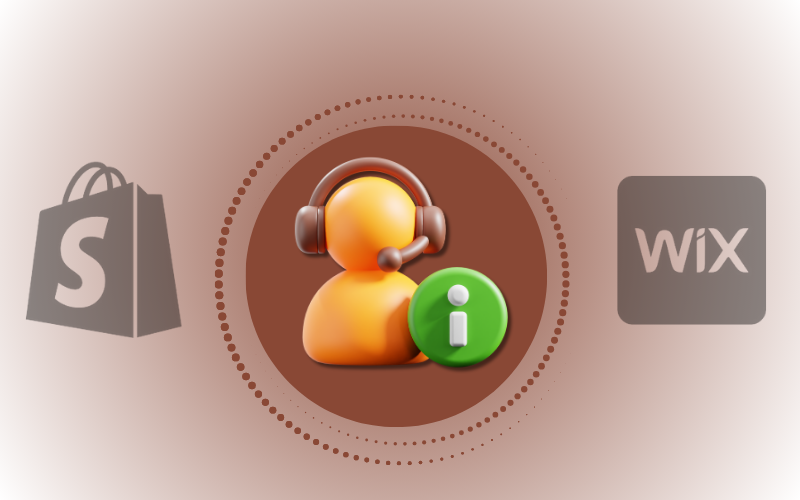
Having reliable support is essential when running an online store, and this is another key area where Shopify vs Wix differ.
Shopify offers 24/7 customer support via live chat, phone, and email. You also get access to a large knowledge base, tutorials, community forums, and Shopify Academy. For advanced issues, businesses often Hire Shopify Developer professionals to solve complex bugs or add custom features.
Wix provides solid customer support through a ticketing system and help center. Premium plans include priority response, but phone support is not available 24/7. While helpful, Wix support may not be as hands-on for eCommerce-related challenges.
Verdict:
- For 24/7, eCommerce-specific support: Shopify
- For general website support and tutorials: Wix
Shopify vs Wix: Which Should You Choose?
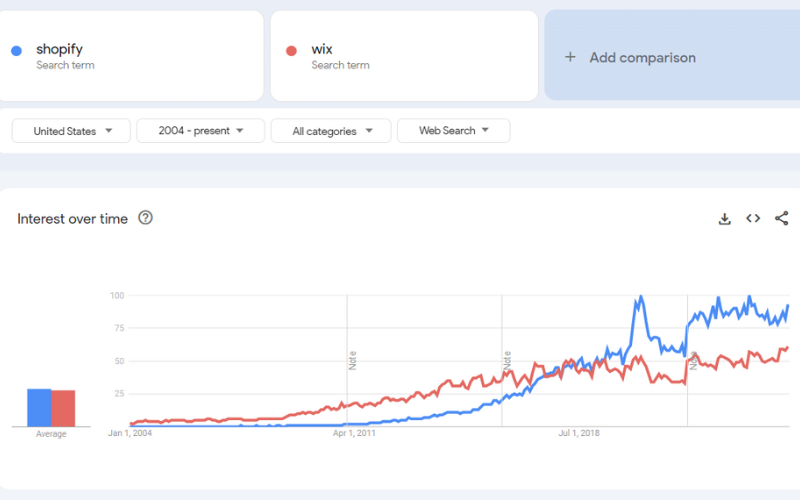
Your decision between Shopify vs Wix should be guided by your business needs, size, technical proficiency, and future growth plans.
Choose Shopify if you’re planning to launch a serious eCommerce store and want scalable solutions with extensive third-party integrations. Businesses looking to expand into international markets or use POS systems will also benefit greatly from Shopify’s offerings. This is where companies like Silver WebBuzz come into play, offering end-to-end Shopify development and support services to get your store running smoothly.
Choose Wix if you’re a creative professional or a small business owner looking to create an attractive website quickly and affordably. If you’re not too concerned about complex eCommerce needs, Wix offers all the essential tools with minimal effort.
If you already have a design vision in mind and lack the technical skills to implement it, it’s a wise idea to Hire Shopify Developer or even Wix experts to help you set up your digital storefront efficiently.
Summary
The Shopify vs Wix comparison reveals that both platforms have their strengths and ideal use cases. Shopify is the undisputed leader in the eCommerce space, offering a robust, scalable, and professional-grade platform tailored for online selling. Wix, on the other hand, is perfect for users who prioritize design flexibility and simplicity.
Here’s a quick recap:
| Feature | Shopify | Wix |
|---|---|---|
| Ease of Use | Moderate | Very Easy |
| eCommerce Tools | Advanced | Basic |
| Design Flexibility | Moderate | High |
| App Ecosystem | Extensive and eCommerce-focused | General-purpose |
| Pricing | Premium, scalable | Affordable, with free tier |
| SEO Capabilities | Strong | Strong |
| Customer Support | 24/7 live support | Email and ticket system |
So, which is right for you?
If you’re planning a high-performing eCommerce store, want excellent SEO, and expect high traffic, Shopify is the best bet. And if you’re looking to enhance your project with customized features, Hire Shopify Developer services from trusted companies like Silver WebBuzz can help you get there faster and smarter.
If you want a visually appealing website with fewer technical demands and more creative freedom, Wix is a strong contender.
Final Advice
Before you make a decision between Shopify vs Wix, consider these final tips:
- Define your business goals clearly.
- Assess your budget for development, maintenance, and scaling.
- Consider your technical expertise or the need to Hire Shopify Developer or Wix specialists.
- Think long-term: Will the platform support your business in 2-5 years?
Remember, both platforms offer free trials. So, test them out and explore their features before committing.
Whether you go with Shopify’s eCommerce excellence or Wix’s design brilliance, success comes from how well you align the platform’s strengths with your business needs. And if you ever feel stuck or overwhelmed, professional partners like Silver WebBuzz are just a call away to guide your Shopify development journey.
